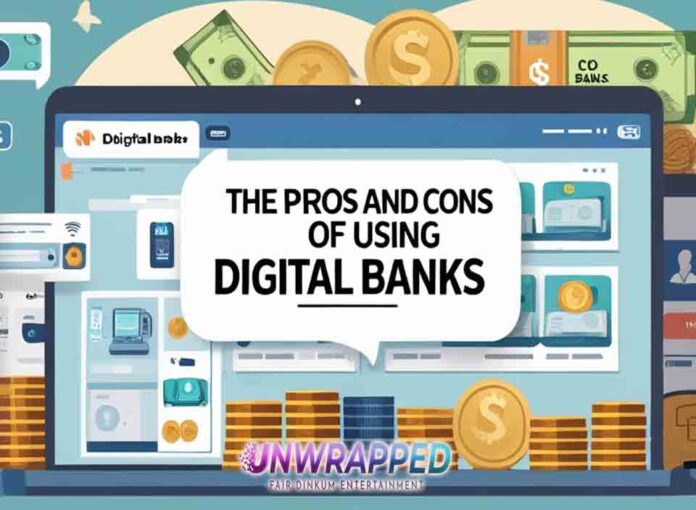Money management has never been simpler than it is in the fast-paced world of today. Smartphones and constant internet access have made digital banking a regular part of daily life. For shopping, paying bills, or enjoying safe online sites like Safe Casino, many people choose digital banks. They offer more convenience and flexibility. Digital banks, like any financial service, have pros and cons. It’s important to weigh these before making a switch.
Digital Banks: What Are They?
Digital platforms are the sole means of operation for digital banks, sometimes referred to as online-only banks. Since they don’t have any physical locations, all of your transactions take place online. Without ever going to a bank office, you can apply for loans, deposit checks, open an account, and transfer funds. These services are quick, easy, and user-friendly, and they may be accessed via websites or applications.
The Advantages of Online Banking
Digital banks mainly attract customers by making everyday financial tasks easy. They give you full control and remove many problems linked to traditional banking.
Accessibility and Convenience
You can handle your money at any time and from any location. There’s no need to adhere to office hours or wait in line. Your phone and an internet connection are all you need.
Better Rates and Reduced Fees
Digital banks frequently have reduced service fees because they don’t have to pay for physical expenses like rent and employees. In comparison to regular banks, some even offer savings accounts with higher interest rates.
Additional advantages consist of:
- Real-time alerts for each transaction
- Simple tools for budgeting and spending tracking
- Quick customer support via email or live chat
Digital banks attract people who want easy and independent money management.
Digital Banking’s Drawbacks
Digital banks are convenient, but they’re not flawless. For some, the absence of face-to-face communication or technical difficulties can be problematic.
Insufficient Individual Assistance
If you require in-person assistance, you may find the experience deficient because there are no actual branches to visit. Although customer service is typically offered online, some issues may take longer to fix.
Reliance on Technology
Your ability to access money is entirely dependent on mobile devices and the internet. You may be momentarily locked out of your account due to power outages, bad connectivity, or app bugs.
Other drawbacks consist of:
- Potential hold-ups in transfers or deposits
- Fewer alternatives for making cash deposits
- Increased danger if you fall for online scams or phishing
Customers of digital banks need to stay alert. Even with strong security measures, safe online habits are key.
Striking the Correct Balance
Your lifestyle and degree of technological comfort will determine whether or not you choose to utilize a digital bank. Combining traditional and digital banking is the most effective option for many people. You can have a local bank account for emergencies or in-person help. Use online platforms for easy daily transactions.
Every year, new features and improved security make digital banking even better. It can simplify and organize your financial management when used properly. However, it’s crucial to maintain awareness of its limitations and safeguard your private data.
Digital banks ultimately provide you a great deal of autonomy and control over your money, but they also come with a price: accountability. In a world growing increasingly digital by the day, knowing the pros and cons helps you make better decisions and feel more secure about your finances.










